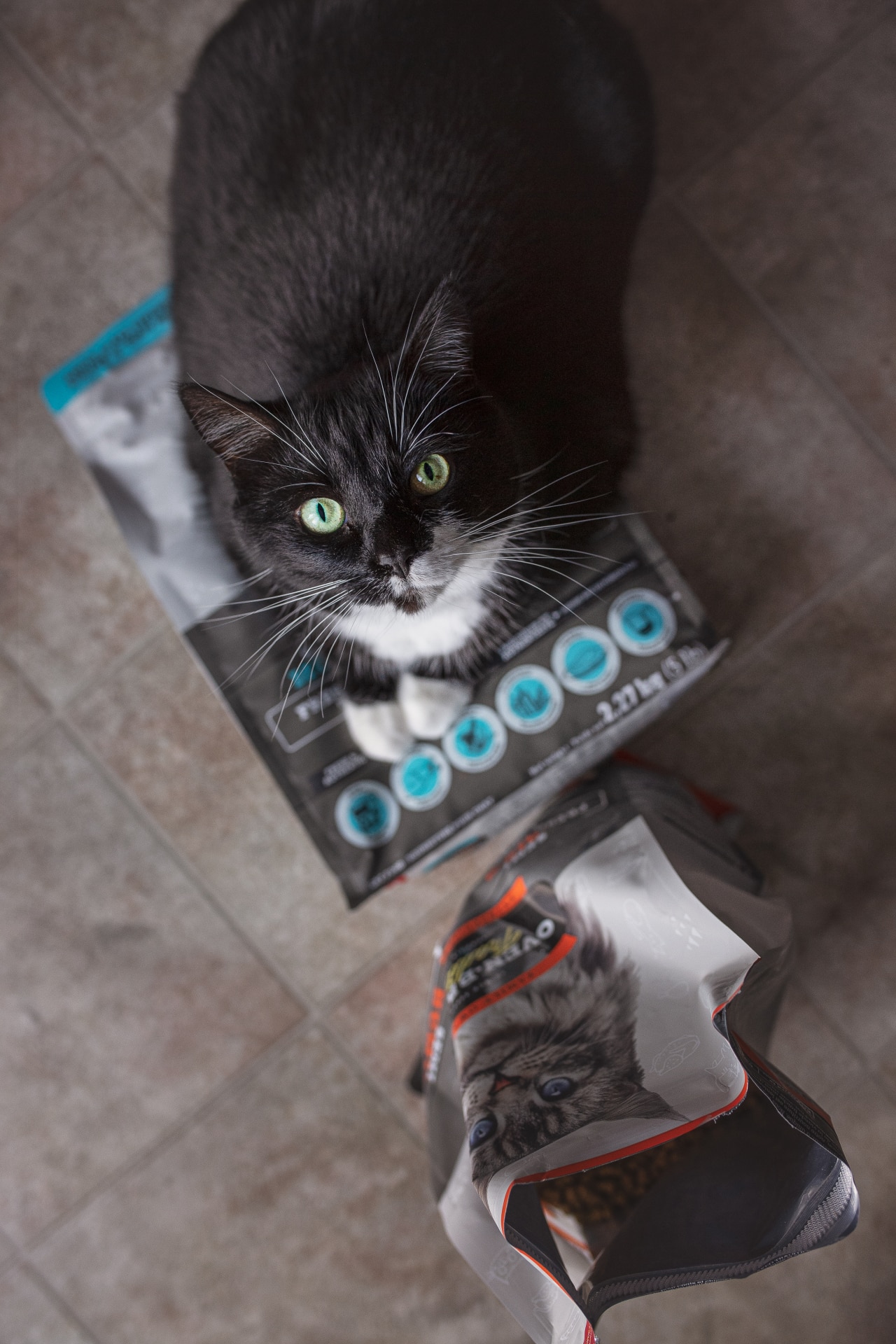Like us humans, pets can suffer from food allergies and food intolerances. These are in fact very common: more than 10% of dogs are known to have food allergies while this proportion is a little bit less documented in cats. In addition to allergies, a lot of cats and dogs suffer from specific food intolerances, or even just have a sensitive digestive system that tends to react a lot, unpleasantly.
What is the difference between a food allergy and a food intolerance?
An animal is allergic to a food ingredient when its immune system reacts defensively, mistakenly identifying the ingredient as something harmful. Symptoms can vary, but they usually include excessive scratching and licking, as well as skin reactions such as rashes and hives. Some pets could also have nausea and vomit.
When it comes to intolerances, only the animal’s digestive system reacts strongly to the food ingredient. The food intolerant pet will show symptoms such as severe gas, bloating, nausea, vomiting and diarrhea.
What cause these allergies and intolerances?
Genetics, most probably. Pets that suffer from allergies and intolerances have an immune system or a digestive system that reacts excessively and mistakenly. Because the source is known to be mainly genetics, it is a good idea to ask the breeder if there are allergies or intolerances in the bloodlines. Some breeds, such as retrievers and rex cats, are also more prone to develop allergies or intolerances.
What can you do about allergies and intolerances?
Allergies and intolerances will not go away. You have to remove the allergen from your pet’s daily diet for the symptoms to go away. Identifying the food ingredient that triggers the allergy or the intolerance symptoms is the trickiest part. An elimination diet in which you remove all potential allergens from your pet’s diet during an average of 6 weeks is usually the recommended procedure. Following this diet, all typical symptoms that your pet usually shows should disappear. When it is the case, you can reintroduce potential risky food ingredients one by one, and as soon as you see any allergy or intolerance symptom, you know which ingredient to blame. All other food ingredients can then be reintroduced, while the allergen is obviously removed from your pet’s diet from now on.
What are the most common food allergies or intolerances?
Chicken, corn, wheat, and soya are the most common food allergies or intolerances in cats.
Chicken, corn, wheat, soya, rabbit, pork, beef, and dairy products are the most common food allergies or intolerances in dogs.
Hypoallergenic food
Some pet products are marketed as “hypoallergenic”. It usually means that they share these two criteria:
– They have a limited number of ingredients: only the essential, nothing useless.
– They do not contain the most common sources of allergens.
At Oven-Baked Tradition, our Fish recipe for cats and for dogs is known to be hypoallergenic: its main source of protein is whitefish, which is not a common allergen and is easily digestible. Our grain-free fish recipe for cats or for dogs also removes all potential common grain allergens such as corn, wheat, and soya, making it an even better choice for cats or dogs that suffer from intolerances or that have a very sensitive digestive system.
All Oven-Baked Tradition products are exempt of non-value added filling ingredients, by-products, artificial color or flavour, or preservatives. Plus, all of our recipes contain no corn, soy or wheat. We therefore remove as much as possible sources of potential allergies, intolerances or digestive problems.


